【新唐人2011年7月9日訊】美國的兩大市場監管機構,去年開始對在美上市中國公司的欺詐行為發起調查,但是調查和制裁行動卻遭遇種種阻礙。美國正在推動和中國監管部門達成協議,以允許他們對中國審計機構進行檢查。但是過去幾年,中共以主權為由拒絕這項要求。評論者指出,中國概念股的欺詐行為反映出整個中國經濟是一場騙局。
英國《金融時報》報導,近一段時期,賣空者對在紐約、多倫多、香港等國際性股票交易所上市的眾多中國公司發起了襲擊,指控它們存在欺詐或其他不法行為。美國主要市場監管機構「證券交易委員會」(SEC),與監督審計師事務所的聯邦機構「美國上市公司會計監督委員會」(PCAOB),都在去年啟動了調查,並且加大了對在美上市中國公司的審查力度,但由於在調查和制裁的環節上,他們遭遇到很大阻力。
在正常的調查中,證交會需要向被調查公司、它的供應商及其他合作夥伴發出傳票,要求它們呈交各種文件、證詞及其他記錄,來證實財務報表。但如果沒有當地監管機構的支持,證交會就無法向美國境外的公司發出傳票。
一旦發現審計師對反向收購公司有問題的帳目視而不見,上市公司會計監督委員會也會予以嚴厲譴責,但這種舉措也受到限制,因為檢查人員無法進入中國,調查設在那裏的審計師事務所。
在對這些欺詐行為進行制裁方面,美國監管機構也有一些鞭長莫及。2006年,證交會向中國節能科技公司(China Energy Savings Technology)提出了欺詐指控,並贏得了判決——法庭判決中國節能科技及其高管上繳不當收益並支付罰金,共計3400萬美元。但證交會一直無法收回這筆錢。
會計監管委員會的一份報告顯示,過去3年內,共有215家在中國有業務的公司在美國交易所上市,且絕大多數公司都是通過反向收購上市。已有至少24家中國公司的審計師在發現問題後辭職。今年已有至少20檔股票被暫時停牌,多達8家公司的上市登記已被撤銷。
紐約城市大學經濟學教授陳志飛指出,中國概念股的破滅,暴露出中國經濟「金玉其外、敗絮其中」的實質。所謂的很多輝煌的成就都是靠假賬,靠虛假行為來支撐的。這對整個美國金融和商業界是一個非常及時的提醒。
陳志飛(紐約城市大學經濟學教授):「如果他們假想中國經濟遵從他們一直以來奉為信條的這種準則的話,他們就大錯特錯了。雖然中共在很多方面和國際接軌,但那也只是表面上騙人的堂皇之說。他們實際上在行為上還是按照自己的潛規則在做事。」
陳志飛指出,這些概念股的詐騙行為,反映出整個中國經濟就像一個泡沫,一個騙局。一些對沖基金比一般投資公司更為清醒的看到中國經濟的實質。他們不但做空中國的公司,甚至開始做空人民幣。
陳志飛(紐約城市大學經濟學教授):「他們甚至在做空中國貨幣人民幣。他們認為人民幣將來不但不會升值,而且會被貶值。而這種貶值也是因為中國經濟的崩潰造成的。這個在幾個月前來說,都像是天方夜譚一樣的。」
陳志飛還表示,中國概念股的欺詐行為對美國經濟本身沒有太大衝擊,但是它造成的影響是深遠的。整個西方自由經濟體將對中國經濟進行重新衡量。這意味著將來西方對中國的投資會大幅度減少,對中國市場商品的進口會大幅度減少。這也引起中共當局極大恐慌。
據《金融時報》的報導,美國證交會(SEC)和「美國上市公司會計監管委員會」的官員,計劃下週在北京會晤中國同行,希望談判達成一項協議,允許它們對中國的「審計機構」進行檢查。有關談判從2007年就已開始。但是中國傳統上以主權問題為由,拒絕美國機構在中國進行檢查。
新唐人記者秦雪、周天採訪報導。
SEC Investigations Impeded
Two major market regulators in the U.S. initiated investigations
on the frauds of Chinese companies listed in the U.S. in 2010.
However, the investigations face tremendous obstacles.
The U.S. is trying to reach an agreement with China』s regulatory
departments to allow them to inspect the Chinese auditors.
In the past few years, the CCP refused the request for
sovereignty reasons. Commentators pointed out that
Chinese concept stock frauds reflect the fact that
the entire Chinese economy is a scam.
Financial Times reported that recently short sellers have
attacked Chinese stocks listed on international stock exchanges.
These companies are accused of having committed frauds.
Major U.S. regulator, Securities and Exchange Commission
(SEC), and the supervising federal agency of auditing firms,
U.S. Public Company Accounting Oversight Board (PCAOB),
both launched investigations in 2010.
They put in more efforts in reviewing U.S.-listed Chinese firms.
However, during the investigations,
they encountered considerable resistance.
Normally in an investigation, the SEC issues an order to
the companies being investigated, their suppliers and partners
to request them to submit various kinds of documents,
testimonials and other records to confirm their financial results.
However, without the support of the local regulators,
the SEC will not be able to issue the order to foreign firms.
Once an auditor is found to turn a blind eye on questionable
transactions relating to reverse mergers, it will be condemned
by PCAOB. However, this initiative was limited,
as the inspectors cannot enter China to investigate auditors there.
Some fraudulent firms are beyond the reach of U.S. regulators.
In 2006, the SEC filed a fraud case against
China Energy Savings Technology (CESV), and won the case.
The court ordered the firm and its executives to turn in the
profits earned through frauds and pay a fine of $34 million.
However, the SEC has been unable to receive the money.
A report of PCAOB shows that in the past three years,
a total of 215 Chinese companies were listed on U.S. exchanges.
Among them, the vast majority got listed by reverse mergers.
At least 24 auditors in Chinese firms resigned
after discovering problems. In 2011, at least 20 Chinese stocks
have been temporarily suspended.
Eight companies have had their registration revoked.
City University of New York (CUNY) economics professor
Chen Zhifei said that the Chinese concept stocks』 bursting
exposes the Chinese economy』s true nature.
Many of the so-called brilliant achievements are fabricated
by false accounting records.
This serves as a timely reminder to the U.S. financial sector.
Chen Zhifei: If they think the imaginary Chinese economy
follows the guidelines that they have been following,
they are absolutely wrong. Although in many respects,
the Chinese standards seem to be comparable to
the international standards, that is only on the surface.
The Chinese actually act according to their hidden rules.
Chen Zhifei said these concept stocks』 frauds reflect the fact
that the entire Chinese economy is like a bubble and a scam.
Some hedge funds can see the nature of the Chinese economy
more clearly than average investment firms.
They not only short Chinese stocks, but also short RMB.
Chen : They even short the Chinese currency RMB.
They believe the RMB will depreciate.
And this depreciation is caused by the collapse of the economy.
All these sound like a fiction a few months ago.
Chen also said that the frauds of Chinese concept stocks
do not have much impact on the U.S. economy.
However, they have far-reaching impacts on the future.
The Western free economies will re-assess China's economy.
This means that the future investments from the West will be
greatly reduced, as well as the imported Chinese goods.
This will cause the Chinese authorities to be panic-stricken.
According to Financial Times, SEC and the PCAOB plan to
meet with their Chinese counterparts in Beijing next week.
They hope to reach an agreement that allows them to
inspect the Chinese auditors. The negotiations began in 2007.
However, China has always refused the request by the U.S.
for the reason of sovereignty.
NTD reporters Qin Xue and Zhou Tian
看下一集

【禁聞】“憐中華” 瑞典留學生被驅逐出境

【禁聞】廖亦武抵德國 新書即將出版
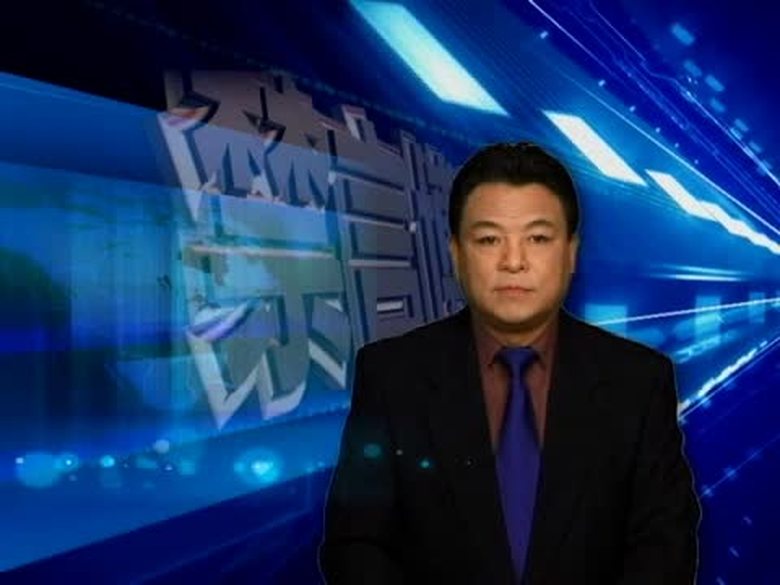
【禁言博客】毛左---我為你悲哀!

【禁聞】紅色公園夭折 傳與江澤民死訊有關
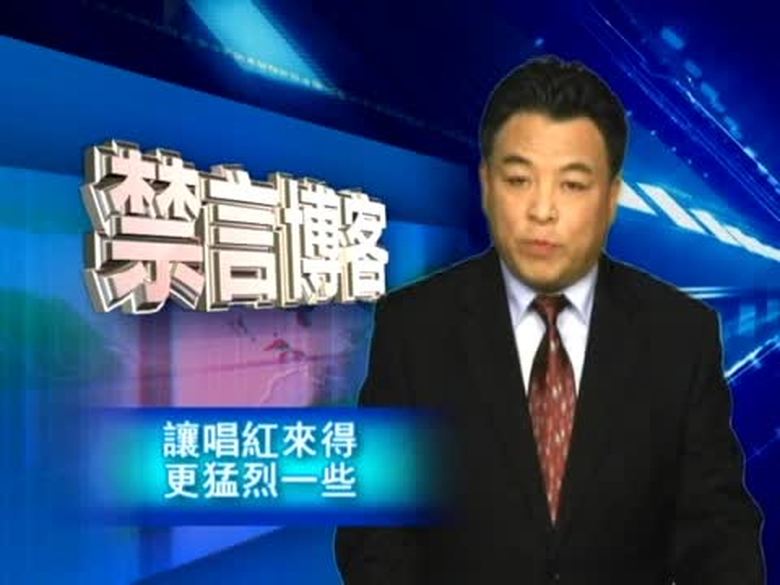
【禁言博客】誰導演了中國公司在美造假醜劇
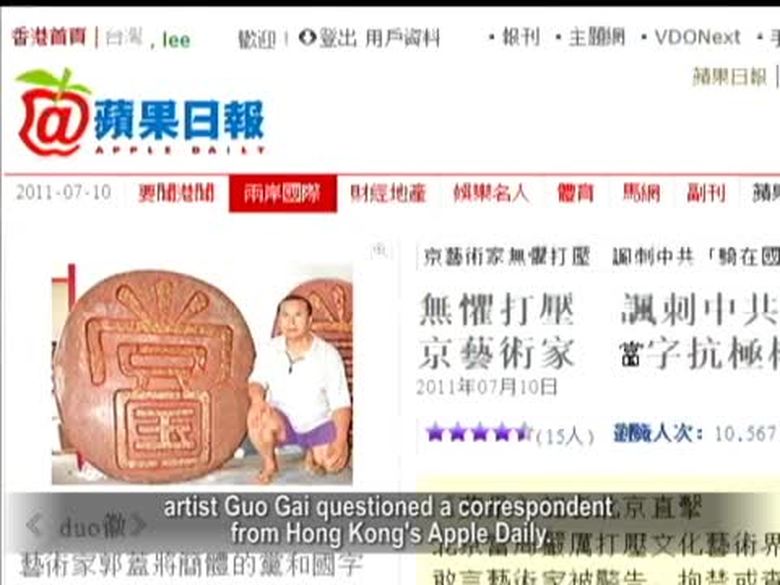
【禁聞】黨騎在國家頭上拉屎 郭蓋造新字
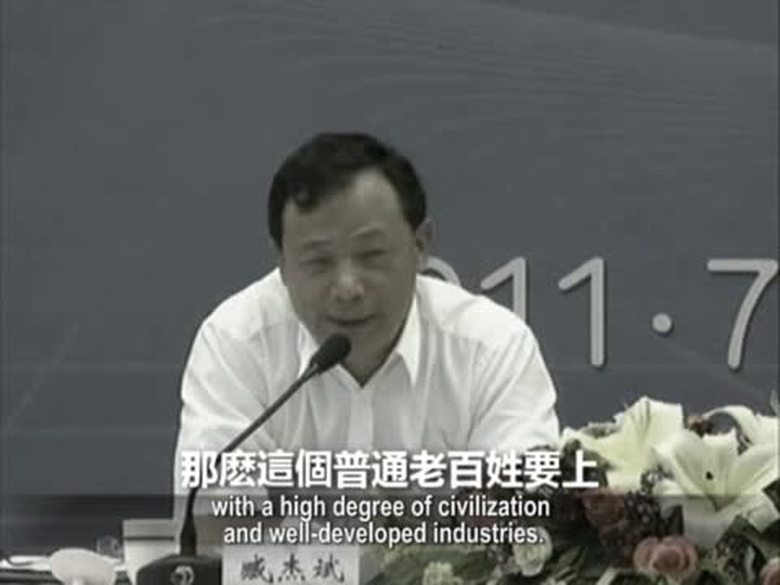
【禁聞】貶德國上網難 廈門副市長惹非議

【禁聞】廢棄水庫無人管 旱澇問題更嚴重

【禁聞】城市化矛盾突出 衍生「砍手黨村」
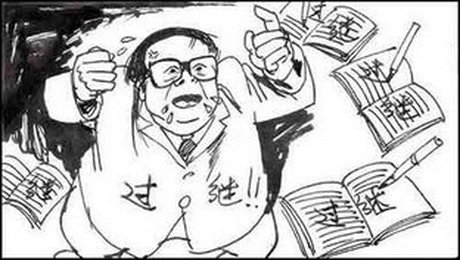
【禁聞】江澤民劣跡揭底之一:二奸二假
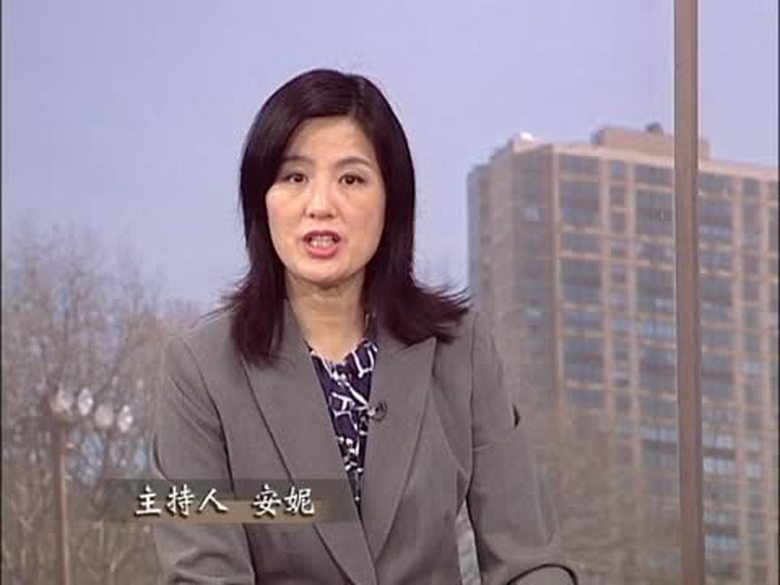
【禁聞論壇】誰為江澤民報喪?

【禁聞】“豬肉”拉動CPI飛漲的背後

【禁聞】經濟專家:全大陸地方債達69萬億

【禁聞】愛黨 愛民?未來香港特首兩個老闆

【禁聞】瑞典學生被驅逐 回國成英雄

【禁聞】江澤民劣跡揭底之二:出賣國土








